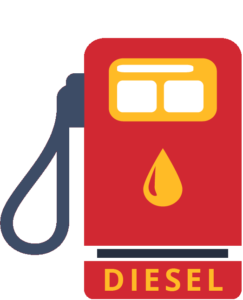Carriers in the Atlantic provinces are not immune to headwinds from lower freight volumes and rates that are affecting the rest of the country but are positive that they will ride out the current challenges.
Volumes are low and have dried up a little bit especially south of the border, creating issues for companies that have been actively trying to recruit and retain drivers and now don’t have loads for them, said Chris McKee, executive director of the Atlantic Provinces Trucking Association.
“Members are getting creative as to how they retain drivers during this period, they know things will eventually come back up,” he said during the group’s annual conference in Charlottetown, Prince Edward Island on Oct. 19.

Volumes are lighter, agreed Maryse Doucet, vice-president, LTL and terminal operations, of New Brunswick-based Armour Transportation Systems.
Cracks are starting to show with capacity and volume, added Trevor Bent, CEO of Nova Scotia-based Eassons Transport. “Volumes are down, capacity up, rates depressed, and equipment costs are going upward next year another 10 to 15%,” he said.
“Now it’s a waiting game to see how that flushes out. How many folks can stay in it long enough in a survival environment. Rates are getting pounded, there is a recessionary feel to the economic landscape today.”
Sick days
Adding to the pain is the new 10 sick days requirement for federally regulated fleets, forcing some to hire additional drivers to fill in the gaps, increasing costs.
Doucet said the sick days have added to the driver shortage issues. “Before we had a few calling in sick, now we have a lot more. Seeing the gap year-round, we need more drivers to fill the same level of work we had before,” she said.
Eassons’ Bent has the same issue, but not so much with drivers as with the shop and back office. The longhaul carrier has seen a slight uptick in drivers taking additional sick days.

“We are behind on equipment repairs and there are delays,” Bent said, adding to overtime costs. He said it is harder to recruit people in the trades and it puts pressure on those who are working. “It is a challenge for retention and increases burnout.”
But this issue also has a silver lining. Aligning with other sectors that compete for workers on labor issues like sick days, makes the trucking industry more competitive, Bent said.
He added that the industry is nimble and will adapt to the situation. “We can show that we are taking care of our people, making it attractive to new workers.”
And it is not all doom and gloom. Diversity, equity and inclusion gains are shining a positive light on the industry, Doucet noted. Companies are making efforts and numbers are increasing. Having a good mix of people makes for a better workforce overall, she added. “This leads to better ideas, more creativity, and pushes the company to explore opportunities that we had not necessarily done in the past,” she said.
Bent said the industry’s image is changing for the better. Seeing more young people join is a positive, he said, adding that government funding and support has been very good in helping recruitment efforts.
McKee, Doucet and Bent also discussed numerous issues that affect the trucking industry in the Atlantic provinces.
Infrastructure
McKee will participate in the Senate committee hearings next week on the Isthmus of Chignecto that provides the only road and rail connection between New Brunswick and Nova Scotia.
About $35 billion a year in truck and rail trade runs along this sea-level route, which is part of the Trans-Canada Highway. Climate change is bringing along tropical storms and hurricanes that threaten about 20 km of the vital supply route.
“There is the real danger you could wake up one morning and it is gone. Even if it was gone for two or three days it would impact the supply chain badly,” McKee said.
The APTA executive director called on governments to provide additional rest areas with proper facilities that provide for the basic needs of drivers. “We need to be welcoming to our drivers. We are trying to attract people into the industry and must make sure their needs are met.”
He also urged government to provide reliable ferry services in the region.
Zero emissions
Doucet says Armour is diversifying its fleet and has introduced electric vehicles for use in courier and city applications.
Bent said Eassons finds compressed natural gas the most interesting option and is planning to talk about it with suppliers. “We haven’t pulled any triggers yet,” he said.
The APTA is starting to work on zero emission technology and plans to use the lessons learned in Alberta and B.C., McKee said. He plans to talk with fleets, fuel cell manufacturers and producers of hydrogen. “We will inform members of what is out there, and what is coming.”









